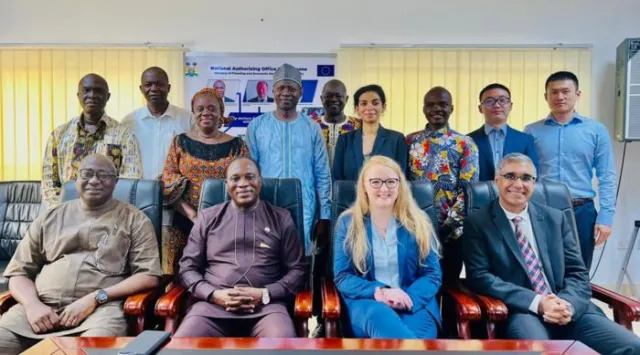Somali Magazine – The International Monetary Fund (IMF) and the Sierra Leonean authorities have reached a staff-level agreement on economic policies to finalize the eighth and final review of the 60-month ECF-financed program, releasing about US$20.4 million in financing once the review is formally completed by the IMF Executive Board.
The IMF program has laid the foundations for an economic recovery by taking steps to restore macroeconomic stability, address debt vulnerabilities, and protect the most vulnerable. Reforms supported by the ECF have strengthened tax administration, public financial management, and financial sector oversight, among others.
Global dynamics and police slippages in recent years have caused microeconomic imbalances in Sierra Leone, leading to tougher survival considering that the cost of living crisis continues to take a severe toll.
The IMF team, led by Mr. Christian Saborowski, visited Freetown from September 25 to October 6, 2023, for the eighth review of Sierra Leone’s financial and economic program supported by the Extended Credit Facility (ECF) arrangement, approved on November 30, 2018.
Once approved by the IMF Management and the Executive Board in the coming weeks, the completion of the eighth and final review under the ECF will make available SDR 15.5 million (about US$ 20.4 million), bringing the total IMF financial support under the arrangement to SDR 124.4 million (about US$163.5 million).
Mr. Saborowski issued a statement saying that due to the imbalances caused by various global dynamics, Sierra Leone has been grappling with poverty and debt piling, causing a drop in the country’s GDP.
“Multiple external shocks and loose macroeconomic policies in recent years contributed to macroeconomic imbalances, including high inflation, a buildup of debt, and low reserves.
“Increases in the cost of living worsened already high levels of food insecurity and made the poor more vulnerable. Financial policy has tightened as programmed during the first half of 2023, although revenues underperformed amid difficulties in sensitizing taxpayers to new tax policy measures and technical challenges in configuring them,” he said in a statement.
The authorities are committed to reducing the budget deficit to 5.8 percent of GDP by 2023, which will necessitate tight spending restraint (to balance third-quarter spending overruns) and rapid progress in fully implementing all recent tax policy initiatives.
Over the first half of 2023, IMF policies remained overly accommodating, and year-over-year inflation continued to rise to 54 percent in September, pushed in part by the recent fuel price increase, Mr. Saborowski’s statement reads.
Currently, the central bank has taken proper actions to tighten microeconomic policies, including hiking the policy rate by 250 bps since June, offering forward guidance on the necessity for a prolonged tight policy stance, and adhering to strict limitations on BSL purchases of government assets.
“Macroeconomic conditions are expected to stabilize over the medium term, predicated on continued efforts to tighten macroeconomic policies and achieve debt sustainability. The authorities envision steadfast fiscal consolidation in the coming years, aiming for a budget deficit of 2.8 percent of GDP in 2024. The central bank is committed to continuing to tighten monetary conditions to help bring inflation to single digits over the medium term. Growth is expected to weaken in 2023 amid the tight macroeconomic policy stance before recovering in 2024, supported by an expansion in mining and agriculture.”
The authorities continue to advance on important reforms, albeit with delays. Capacity-building efforts have focused on strengthening tax administration and improving revenue mobilization; enhancing public financial management; improving foreign exchange operations; strengthening financial supervision and oversight; and improving statistical reporting on government finances, public debt, and national accounts. These efforts were supported by technical assistance from the IMF, the World Bank, and other development partners.
In conclusion, the team met with Finance Minister Bangura, Acting Governor Stevens, and other senior government officials. The mission also had fruitful discussions with representatives from civil society, the private sector, and development partners.

